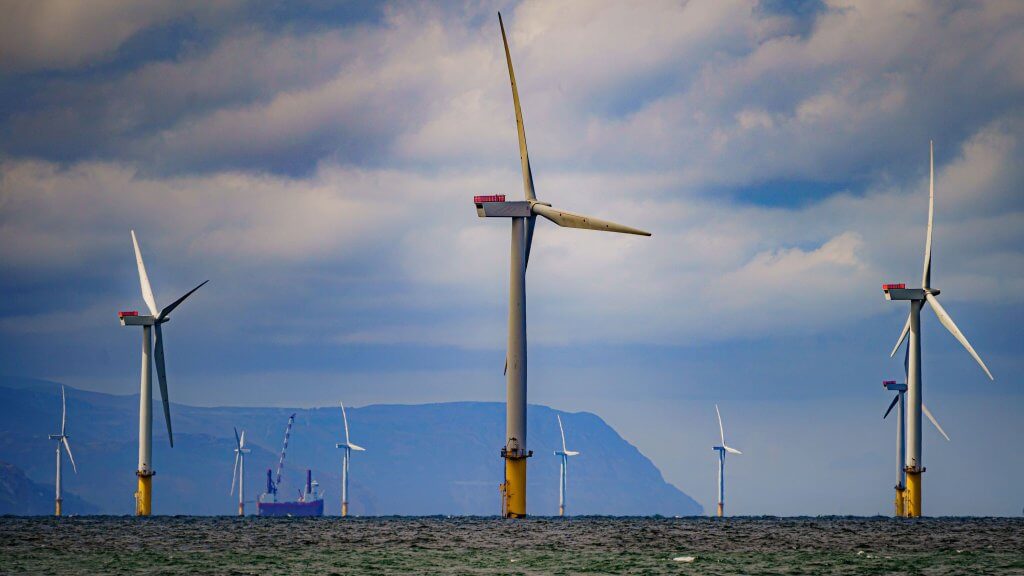
A public-private deal to drive £1 billion investment into offshore wind supply chains has been announced by the Government.
Energy Secretary Ed Miliband said the “unprecedented” collaboration would help deliver clean energy jobs, energy security and lower bills, with investment in areas such as Teeside, Scotland, South Wales and East Anglia.
In addition to previously-announced funding of £300 million from publicly-owned Great British Energy, the Crown Estate has pledged £400 million to support new infrastructure including ports, supply chain manufacturing and research and testing facilities.

And £300 million from industry would match government funding, to deliver investments into supply chains such as advanced turbine technology and offshore wind turbine foundations, the Department for Energy Security and Net Zero (DESNZ) said.
Energy Secretary Ed Miliband said: “This is an unprecedented collaboration between public and private investors with Great British Energy crowding in millions of private sector investment from industry and the Crown Estate, to ensure that British companies and workers win the global race for clean energy.
“We are witnessing the coming of age of Britain’s green industrial revolution as we build this new era of clean energy abundance, helping deliver new jobs, energy security and lower households’ bills.”
Industry body RenewableUK’s deputy chief executive Jane Cooper said: “A concerted focus from industry and Government on growing the offshore wind industry’s supply chain in the UK could deliver an extra 10,000 jobs between now and 2035, boosting the UK’s economy by £25 billion.
£1 𝐛𝐢𝐥𝐥𝐢𝐨𝐧 𝐢𝐧𝐯𝐞𝐬𝐭𝐦𝐞𝐧𝐭 𝐢𝐧 𝐔𝐊 𝐨𝐟𝐟𝐬𝐡𝐨𝐫𝐞 𝐰𝐢𝐧𝐝 𝐬𝐮𝐩𝐩𝐥𝐲 𝐜𝐡𝐚𝐢𝐧 𝐰𝐢𝐥𝐥 𝐜𝐫𝐞𝐚𝐭𝐞 𝐭𝐡𝐨𝐮𝐬𝐚𝐧𝐝𝐬 𝐨𝐟 𝐡𝐢𝐠𝐡-𝐪𝐮𝐚𝐥𝐢𝐭𝐲 𝐣𝐨𝐛𝐬 – RenewableUK and Offshore Wind Industry Council (OWIC) Media Release
Today at RenewableUK’s Global… pic.twitter.com/lKBt63LAQL
— RenewableUK (@RenewableUK) June 17, 2025
“Our sector is stepping up, working closely with the Energy Secretary and the Crown Estate to create new opportunities for manufacturing high-value goods like turbine towers, blades, foundations and cables, and providing high-quality jobs building, operating and maintaining offshore wind farms.”
In addition to the £1 billion funding, which has not yet been allocated to specific projects, the Government has announced it will allocate up to £544 million from its “clean industry bonus”.
The bonus scheme provides funding to offshore wind developers for prioritising investment in some of the UK’s most deprived communities and in cleaner supply chains, with companies pledging to invest in regions such as Scotland, the North East and East Anglia.
Up to £200 million has been allocated to clean energy facilities such as electrical equipment and heavy steel products in the North East, unlocking up to £4 billion in private sector investment, while up to £185 million will go to Scotland, unlocking up to £3.5 billion for ports and wind farm components.
Great British Energy, @OWGPUK, @NatWealthFund, @thebankscot, @TheCrownEstate, @crownestatescot & @devbankwales have agreed to work together to support the UK’s offshore wind.
By coordinating our efforts, we’ll give developers & supply chains confidence to invest in the sector. pic.twitter.com/zaDbX4TzKM
— Great British Energy (@GBEgovuk) June 17, 2025
The East of England will get up to £20 million from the bonus, and Northern Ireland has been allocated £25 million, with industry estimating the cash could support up to 14,000 jobs and drive up to £9 billion of private funding into the regions over the next four years.
The funding will be delivered through the contracts for difference scheme, which pays clean energy developers an agreed price for the power they produce from their projects, and will be allocated to companies that are successful in the next round of auctions for the contracts.
Those projects that win contracts in the auction can then finalise their investment into clean energy manufacturing factories, DESNZ said.
The funding for the clean industry bonus would be paid for through bills, adding less than £2 a year over the next four years, officials said.